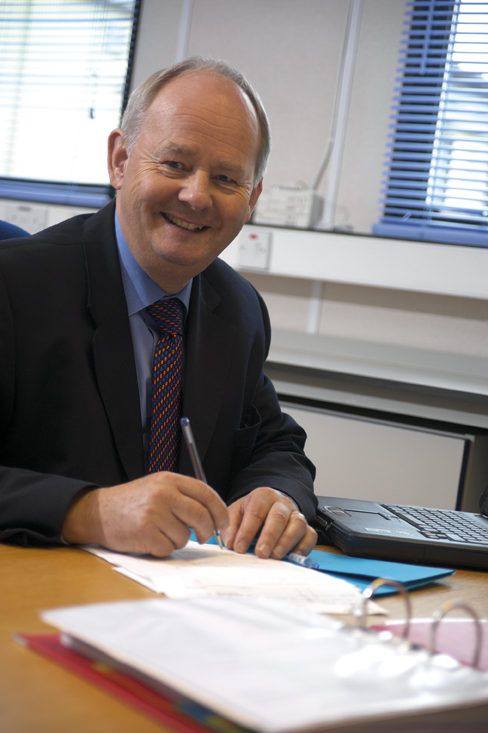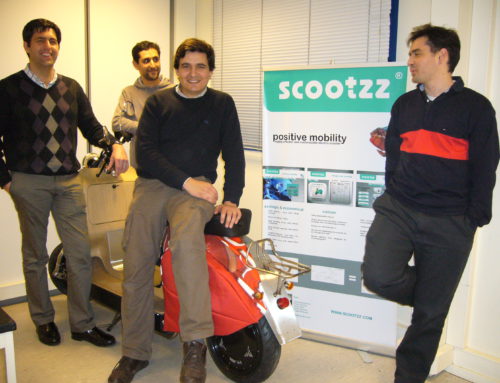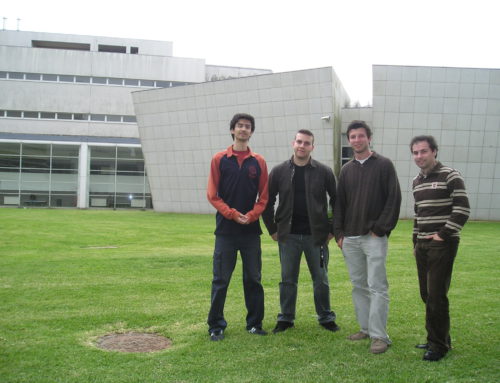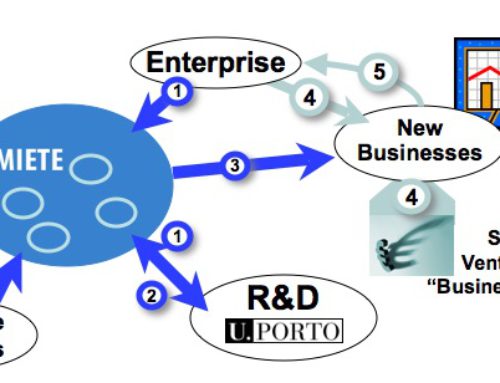MIETE-BLOG: We are back with our 1st post in 2008 and we are most pleased and honoured that Bruce Savage has accepted our challange to make some comments to MIETE Questionaire Results (April 2008). Bruce is a serial entrepreneur in the biosciences sector, a special professor at the University of Notingham business school, entrepreneur in residence at the Cass Business School, London, and at the Oxfordshire Enterprise Hub. The reader of this post can find the Questionaire Results here. Bruce, once again, thank you so much for your time and for your most valuable contribution to our blog.
Bruce Savage: I recently visited INESC in Porto and conducted a mentoring session with 4 early phase technology companies, followed by a lecture on Commercialisation of Technology. Another point I would like to add about my Cv is that I have founded 4 bioscience companies in the Oxford area and so I classify myself as a scientific entrepreneur.
I have been asked to comment on the results from the questionnaire sent to MIETE students. I was impressed by the very positive response from the students. I think this highlights an interesting fact, which is that many scientists/technologists are unaware about the business process, but that once introduced to it they become very enthusiastic about the whole idea of commercialising their technology or starting a business in an area of technology where they have some knowledge. I have been involved in a number of schemes to educate scientists about the business process. Thy have all been very well received. One scheme is called the YES – Young Entrepreneurs Scheme where by either undergraduates and or , postgraduates students can enter as a team from a particular university. They attend a series of lectures and courses and then put together a business plan and a presentation. This is judged and in the finals 4 University teams present to a panel of judges in a prestigious centre in London. The winning team receives £1,000. I lecture the students and over the 11 years it has been running the enthusiasm of the students has increased. Initially I found the students rather cynical about commercial life and did not see an understanding of it as being part of their education. Now they are enthused and all ready to leave university and become entrepreneurs.
One bit of advice I often give is to consider your target market, analyse your potential customers needs and problems and then try to find a technological solution. In our area too often I see technologies trying to find a market. A natural entrepreneur will often see a market and almost instinctivly understand a customers problems whilst he is working on a particular area of technology. I advise entrepreneurs to interview some potential end users to try to determine their problems. A good business is one that solves a customers problems profitably!!
Good luck in your quest to become an entrepreneur.






